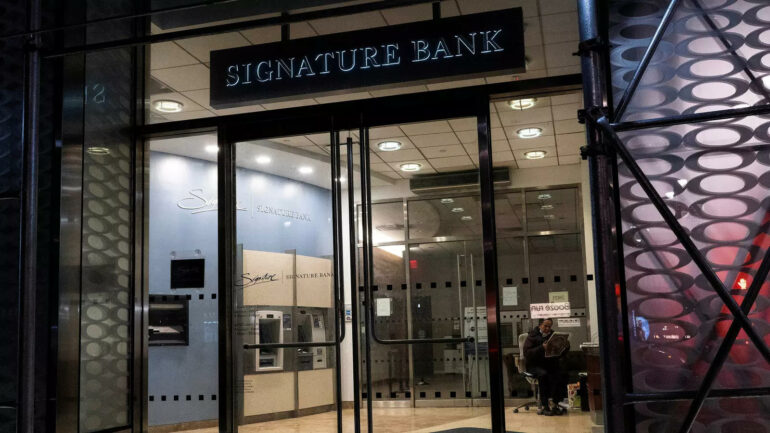- Signature Bank and three of its former executives have been hit with a class action lawsuit.
- The bank’s shareholders accused the bank of fraudulently misrepresenting its financial stability prior to its seizure.
- The lawsuit has named the bank’s former CEO, CFO, and COO.
- The shareholders are seeking unspecified damages from the bank.
Signature Bank, the crypto-friendly financial institution that was shut down by the New York Department of Financial Services (NYDFS) earlier this week, is facing a class action lawsuit from its shareholders. The lawsuit, which was filed in the federal court in Brooklyn, has also named the shuttered bank’s former executives.
Signature Bank allegedly misrepresented its financial health
According to a press release from The Rosen Law Firm, which is representing the bank’s shareholders, Signature Bank is being accused of making misleading statements related to its financial health in the run-up to its seizure on 12 March. The plaintiffs consist of purchasers of Signature Bank’s shares between March 2, 2023, and March 12, 2023. This includes those who purchased the bank’s call options and/or sold put options.
Signature Bank did not have the strong fundamentals that it represented itself as having in the days immediately prior to its takeover, or otherwise took action that left it susceptible to a takeover by the New York Department of Financial Services.”
Additionally, the lawsuit alleged that when the true details of the bank entered the market, the shareholders suffered damages. The law firm is encouraging all affected investors to join the class action suit, which has also named former CEO Joseph DePaolo, former CFO Stephen Wyremski, and former COO Eric Howell. The lawsuit is seeking unspecified damages from Signature Bank.
The NYDFS’ decision to shut down the bank was made in collaboration with the U.S. Federal Reserve in the interest of the U.S. economy. Following the seizure, former U.S. Representative Barney Frank alleged that it was nothing but a show of force from federal regulators. “Regulators wanted to send a very strong anti-crypto message,” Frank told CNBC earlier this week.
Source: Read Full Article

